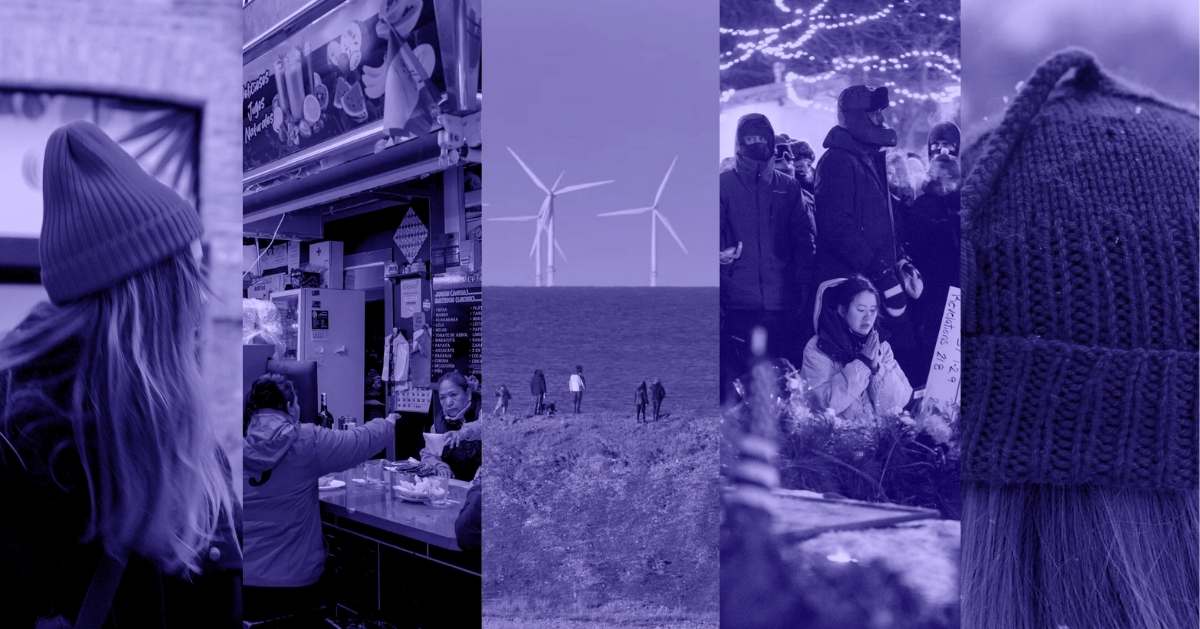On April 9, social entrepreneur Julienne Oyler took to the stage at TED 2025 in Vancouver, Canada, and dropped a sobering statistic on the crowd.
“One in 10 of us will be displaced in 25 years. One in 10. Each of us is more likely to be displaced than ever before,” Oyler said in her TED Talk, which will be published at a later date.
“The time for incremental change is over. We must do things differently.”
Oyler’s intent was not to frighten the audience, but to alert them to the fact that no one — no matter how privileged they appeared — was immune to displacement and disaster.
“We're witnessing accelerated crises with wars in Europe and the Middle East, forcing even more people to flee,” she stressed. “And climate change is triggering floods in Brazil, fires in California, unlivable conditions across continents.”
“And yes,” Oyler noted, “humanitarian aid remains essential in emergencies and for the most vulnerable. But the widespread system, as it is today, was never designed with dignity or to be a long-term solution.”

After immediate aid and shelter, the lives of refugees continue on; They seek work opportunities, provide for their families, and — if possible — attempt to rebuild networks back home.
“Bold action requires us to change our perspectives, partners, and policies,” Oyler said. “For too long, displaced people have been framed as burdens. And that thinking, that narrative, has led to missed opportunities.”
As the CEO of Inkomoko, Oyler has spent the last decade working alongside 100,000 businesses in five African countries: Rwanda, Kenya, Ethiopia, Chad, and South Sudan.
As a consulting firm, Inkomoko offers classes and skill sessions to local entrepreneurs and business owners and uses their investment capital to directly fund businesses in “displacement-affected communities.”
Oyler said that the very people overlooked by traditional finance giants are brimming with dedication, ingenuity, and troves of untapped potential.
“These entrepreneurs, they have the traits that case studies and business schools celebrate,” Oyler explained. “They are resilient and resourceful. They innovate and adapt. They deeply understand their markets. They're the very leaders and problem-solvers investors around the world seek, but are rarely seen as investment-worthy.”
Halfway through her TED Talk, Oyler paused to note that capitalism and markets are, of course, often flawed systems — but “they can be forces for change” when they’re designed with inclusion in mind.
And she had the receipts to prove it.

“When Uganda allowed refugees to work, the country's GDP increased by nearly a billion dollars,” Oyler said. “Ethiopia reformed its policies, and now thousands of refugees contribute in key sectors like agriculture and manufacturing.”
“When Rwanda, the country where I live, included refugees in its national ID program, they gained access to health care, financial services, and are growing an economy.”
“Here's the truth,” Oyler added. “These examples, these African solutions, are what the rest of the world needs to learn from. These solutions are rooted in a shared experience in hospitality, in humanity.”
So, how exactly does the world at large begin investing in displaced entrepreneurs?
Oyler broke it down by field: investors should open their portfolios to refugee-owned businesses, philanthropists should prioritise economic inclusion (especially with a climate focus!), fellow entrepreneurs should recognize displaced people as viable customers and partners, and journalists should shift the narrative of those communities to focus on stories of resilience.
“And policymakers?” Oyler said, inviting them to do their part, too. “Economic integration isn't charity. It drives regional peace and shared prosperity.”
Oyler again reminded everyone in the crowd that displacement could happen to any of them — and invited the attendees to place themselves in the shoes of those who have already fled crisis and disaster.
“From Kakuma to California, Syria to South Sudan, one truth remains: Humanity flourishes when people have the tools to succeed and the belief that they can,” Oyler expressed.
“The future isn't just about preventing displacement. It's about seeing that the solution to one of the world's greatest challenges lies within the people most affected, displaced people themselves. It's on the rest of us to recognize this and invest in them.”

Header image via Inkomoko



